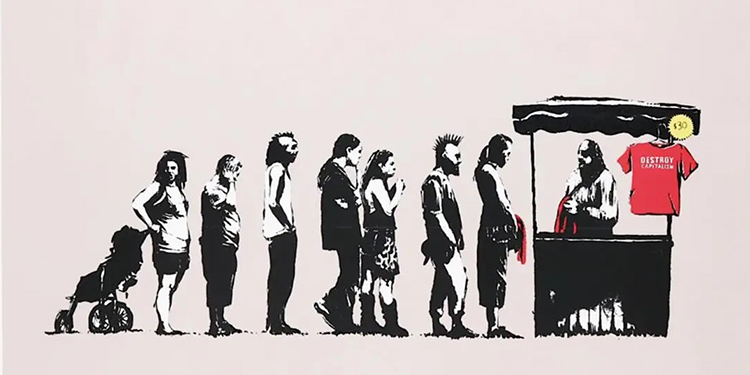NEWS CENTER
“The concept of being anti-system is quite problematic. First of all, does this opposition also mean being anti-civilization? Which aspects does it include or exclude? How does it view the system’s relationship with modernity? Is it possible to construct a new system outside of the existing system without opposing the system’s modernity? How does this opposition see modernity? Has it been able to identify its dual character? Does it have an understanding of alternative modernity? Failing to answer such questions leaves the concept of anti-system forces up in the air. It is difficult to develop a meaningful opposition to the system without both projects for the future and a correct analysis of the past. To overcome these difficulties and arrive at potential answers to these questions, I based my analysis on the concepts of democratic civilization and democratic modernity. I think this is the correct method in the quest for an alternative that will not fall into the previous vicious circles. Despite their problematic structure, anti-system forces are a reality.
They have affected our age as much as the system has. They have been unable to realize their systems theoretically or practically, but it is indisputable that they have accumulated a great deal of experience. While there are important differences across the spectrum of anti-system forces, they also clearly share many common values. They mean capitalism when they speak of the system, not necessarily modernity as a whole. They particularly differ when it comes to industrialism and the nation-state, the other two dimensions of modernity. They are unclear when it comes to civilization. With their convoluted views, they often take their place at opposite poles. It is not often that their future utopias go beyond modernity. In short, they are not attempting to go beyond modernity but to improve it. For most of them, modernity without capitalism would suffice, and they fail to understand that this is entirely utopic.
They usually agree about the system and that it is in a crisis, but when it comes to how to move beyond the crisis, the differences between them grow. Many methods from evolutionary to revolutionary, from peaceful to bellicose, are proposed. There are those who think that changing the state and rulers is a revolution and those who propose a society with no state or power structure. They all essentially have their roots in the French Revolution. Their mindset offers a broad perspective, from nationalism to communism, from religiosity to positivism, and from feminism to ecology. Although they are heavily intertwined with these ideologies they do not seem to realize it. If a generalization were to be made, it could be said that in terms of their social status they are based on the main part of the middle class that is outside the capital and power monopolies. These movements, which include intellectuals who have received a certain modern education and who face increasing difficulties opposing capitalism, do not embody the majority of society. If roughly 10 percent of the population has an active interest in the continuation of capitalism, approximately the same percent oppose it. The remaining 80 percent of society, the non-capitalist society, is an object not a subject in the analyses of both sides and in the solutions they offer. While capitalism calculates the profit to be made when considering society, the opposition considers society to be a mass that can be externally driven, which is why they are unable to overcome modernity.
When we say that capitalist modernity as a system is under an unsustainable crisis regime, we are not talking about a new “revolutionary situation.” The evaluation of similar situations as the objective conditions necessary for revolution has been misused in past discussions, with no conclusions that led to any meaningful success. The crisis regime is not the only result of the crisis, there may also be even harsher counterrevolutions. Perhaps the revolution has the worst chance. Moreover, the role of revolutions in transformation is generally exaggerated and usually wrongly analyzed. Fundamental transformations are not achieved by revolutions but from differences within the system. Revolutions can only lead to meaningful change within the system that they are part of. No doubt anti-system forces are severely affected by economic depressions and crises, but it would be an error to vest all hope in the outcome of these crises. In the past, this was a common mistake that resulted in profound disappointment.
THE RECONSTRUCTION PROBLEMS OF DEMOCRATIC MODERNITY
The fact that within a century real socialism, social democracy, and national liberation movements were incorporated into capitalism had a profound negative effect on opponents of the system. Movements incurred a loss of power. This was the result of their structural inadequacies and a faulty ideological and programmatic perspective. When their mentalities and structures are examined, it is clear that they failed to genuinely overcome liberalism and modernity. Whether they are at the far left or far right of the liberal spectrum, liberalism eventually integrates them. Whether or not they are incorporated into capitalist monopolies depends on their understanding of modernity. Postmodern, radical religious, feminist, and ecological movements are new movements that have emerged in response to these developments. Their current ideological and practical positions make it doubtful that they will be as effective as the system’s former opponents, which is why neoliberalism and radical religionism are able to be somewhat influential. Therefore, what we need is a radical intellectual, moral, and political renewal of opposition to the system. In this context, it is important, necessary, and useful to familiarize ourselves with the history of anti-system forces.”




